Pathophysiology Of Meconium Aspiration Syndrome
Pathophysiology of meconium aspiration syndrome. After delivery the aspirated meconium may block the newborns airways and cause regions of the lungs to collapse. This paper describes the pathophysiology of MAS. Meconium is the first intestinal discharge from newborns.
1 Despite rapid advances in diagnostic and therapeutic modalities over the past decades meconium and its effects on fetus and neonates have remained a cause of significant worry for. Meconium Aspiration Syndrome MAS is the term used to describe a spectrum of disorders marked by various degrees of respiratory distress in the new born infant. Severe MAS is classified as cases that need mechanical ventilation.
This paper describes the pathophysiology of MAS. This follows the aspiration of meconium stained amniotic fluid MSAF which can happen either antenatally 28 of all pregnancies or during birth up to 23 of all pregnancies 1. However considering that meconium is stored in the intestines partly unexposed to the immune system aspirated meconium could be recognized as danger representing damaged self.
It describes the spectrum of disorders and pathophysiology of newborns born in meconium-stained amniotic fluid MSAF and have meconium within their lungs. Though meconium is released prematurely by about 20 of fetuses or babies approximately 5 of babies that are born with the presence of meconium in the uterine amniotic fluid develop Meconium Aspiration Syndrome MAS. The meconium aspiration syndrome MAS is often preventable yet cases of MAS continue to occur.
Meconium aspiration syndrome MAS also known as neonatal aspiration of meconium is a medical condition affecting newborn infants. O MAS is distinct from aspiration of other substances such as blood and amniotic fluid which may produce similar respiratory symptoms Pathophysiology 1. Findings include tachypnea rales and rhonchi and cyanosis or desaturation.
The de velopment of MAS involves passage of meconium by a com promised fetus and the subsequent aspiration of that meconium. Perinatal hypoxia acute airway obstruction pulmonary inflammation pulmonary vasoconstriction pulmonary hypertension and surfactant inactivation all play a role in the pathogenesis of meconium aspiration syndrome MAS. Meconium aspiration syndrome MAS is defined as respiratory distress in newborn infants born through meconium-stained amniotic fluid MSAF whose symptoms cannot be otherwise explained 1.
Intrapartum meconium aspiration can cause inflammatory pneumonitis and mechanical bronchial obstruction causing a syndrome of respiratory distress. Intrapartum meconium aspiration can cause inflammatory pneumonitis and mechanical bronchial obstruction causing a syndrome of respiratory distress.
Meconium Aspiration Types.
Meconium aspiration syndrome MAS also known as neonatal aspiration of meconium is a medical condition affecting newborn infants. Findings include tachypnea rales and rhonchi and cyanosis or desaturation. Meconium aspiration syndrome MAS is the aspiration of stained amniotic fluid which can occur before during or immediately after birth. Meconium aspiration syndrome MAS is the neonatal respiratory distress that occurs in a newborn in the context of MASF when respiratory symptoms cannot be attributed to another etiology. Regarding the complex chemical composition of meconium it is difficult to identify a single agent responsible for the pathophysiology. Findings include tachypnea rales and rhonchi and cyanosis or desaturation. After delivery the aspirated meconium may block the newborns airways and cause regions of the lungs to collapse. Though meconium is released prematurely by about 20 of fetuses or babies approximately 5 of babies that are born with the presence of meconium in the uterine amniotic fluid develop Meconium Aspiration Syndrome MAS. This paper describes the pathophysiology of MAS.
However considering that meconium is stored in the intestines partly unexposed to the immune system aspirated meconium could be recognized as danger representing damaged self. It describes the spectrum of disorders and pathophysiology of newborns born in meconium-stained amniotic fluid MSAF and have meconium within their lungs. Meconium Aspiration Syndrome MAS is the term used to describe a spectrum of disorders marked by various degrees of respiratory distress in the new born infant. Though meconium is released prematurely by about 20 of fetuses or babies approximately 5 of babies that are born with the presence of meconium in the uterine amniotic fluid develop Meconium Aspiration Syndrome MAS. Meconium aspiration syndrome MAS is defined as respiratory distress in newborn infants born through meconium-stained amniotic fluid MSAF whose symptoms cannot be otherwise explained 1. Regarding the complex chemical composition of meconium it is difficult to identify a single agent responsible for the pathophysiology. This paper describes the pathophysiology of MAS.



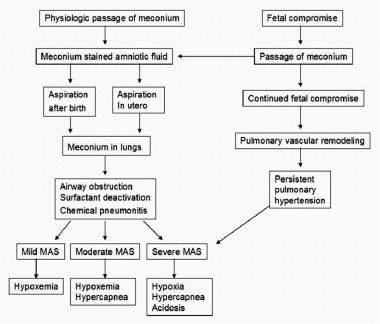



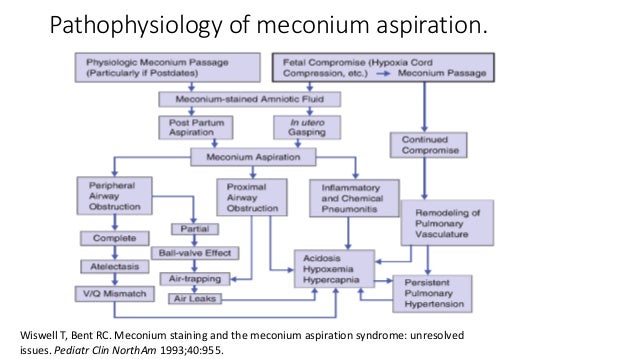





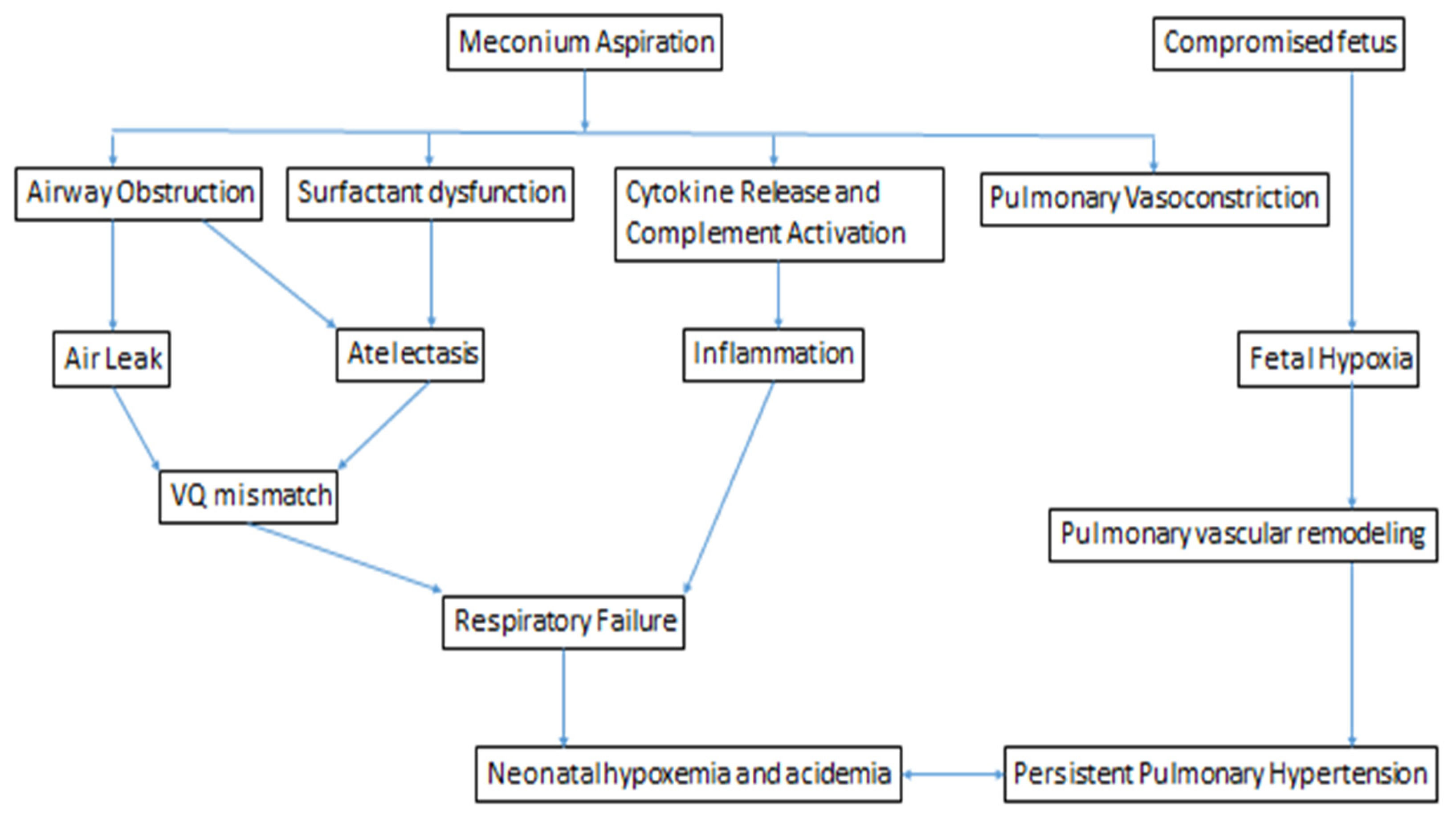


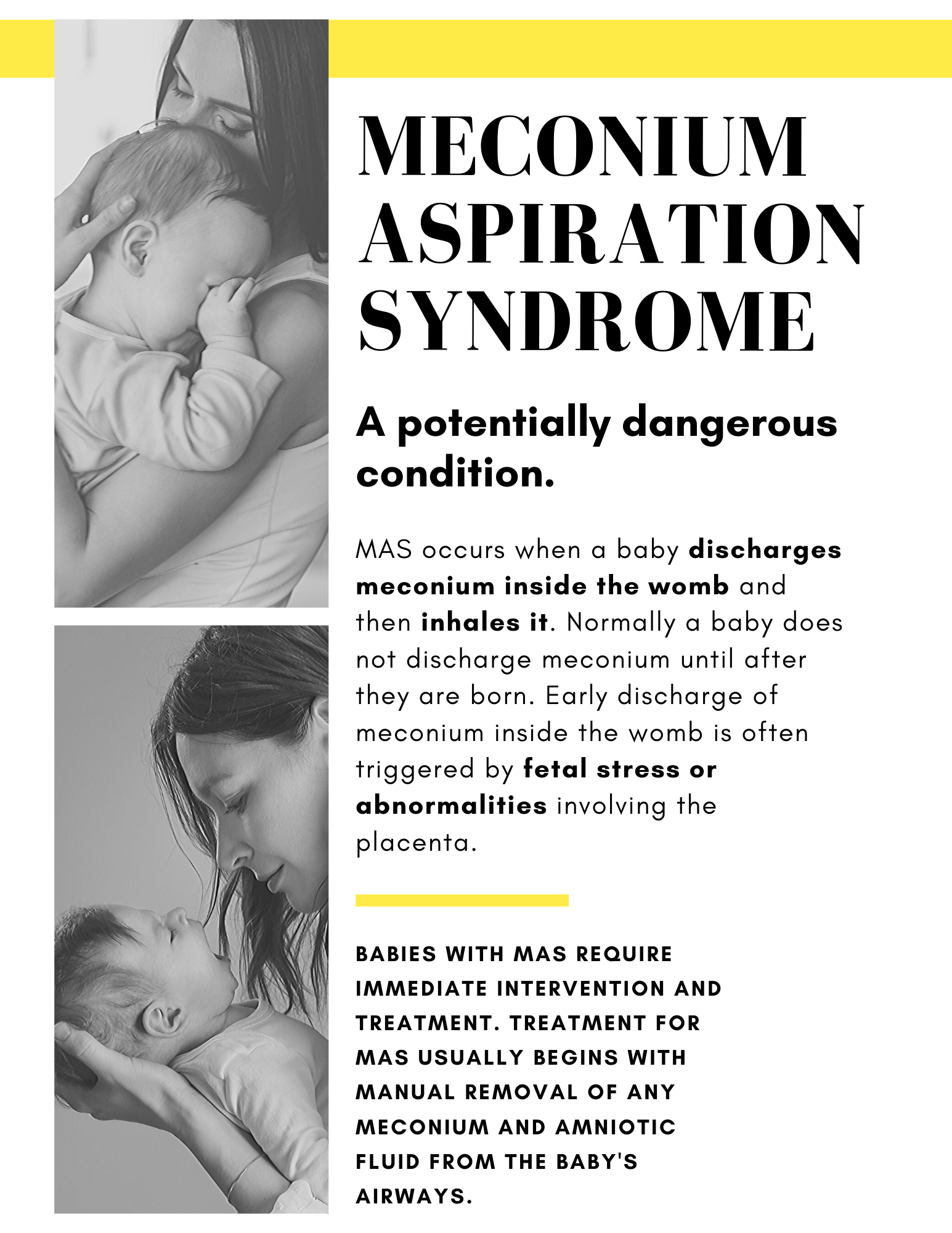

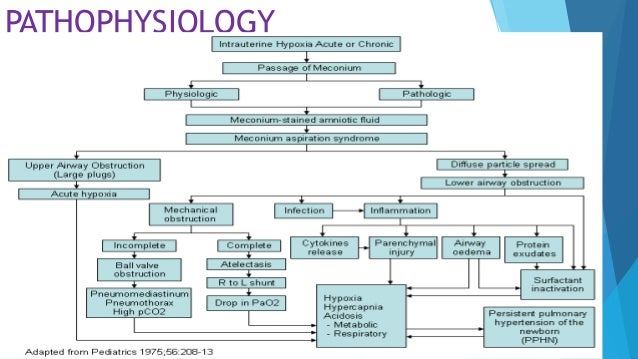
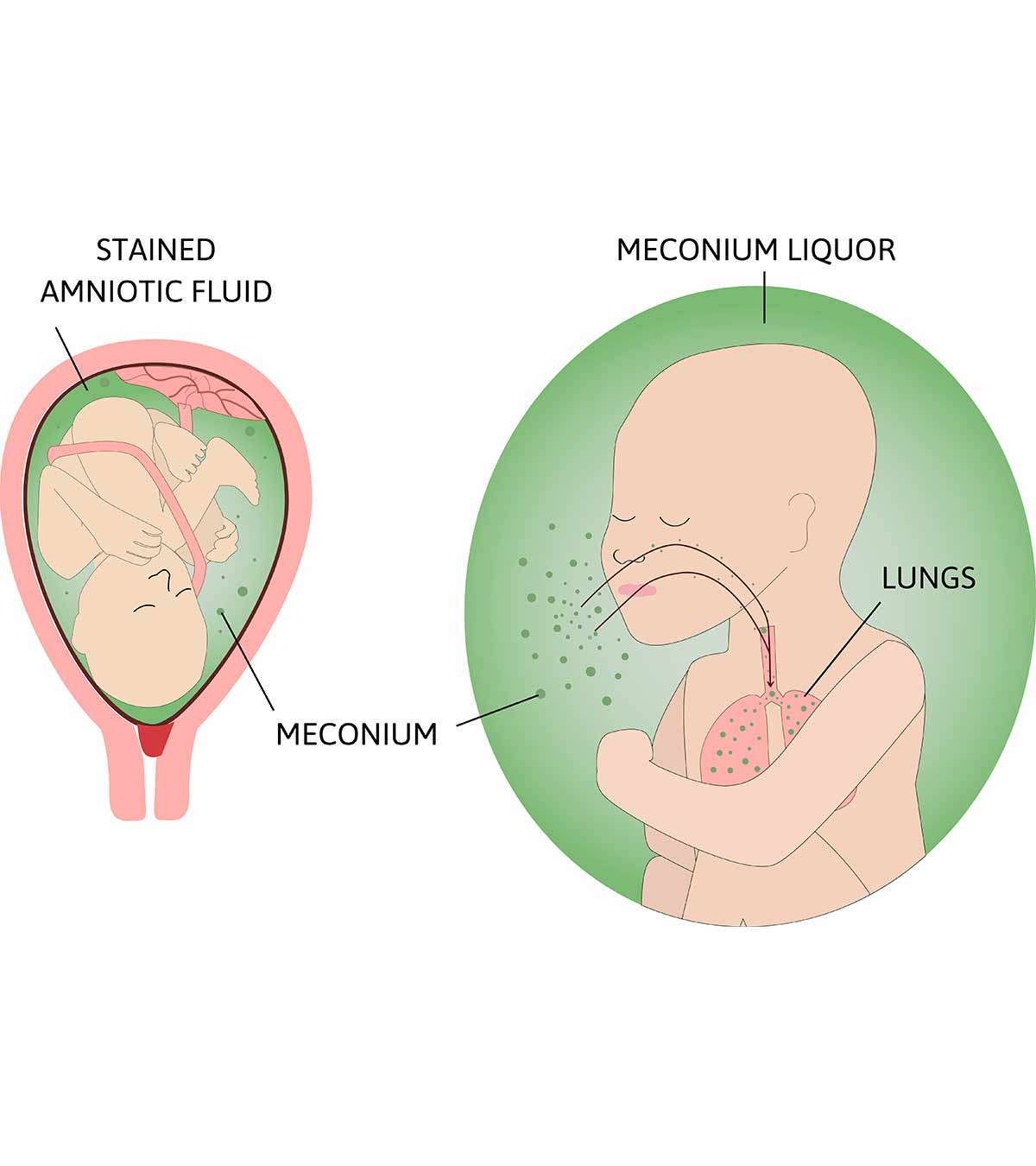

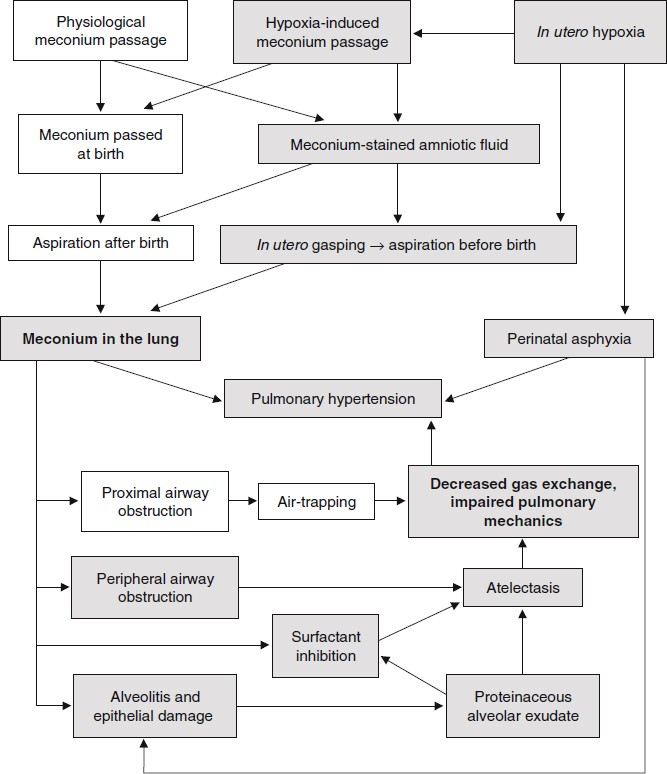


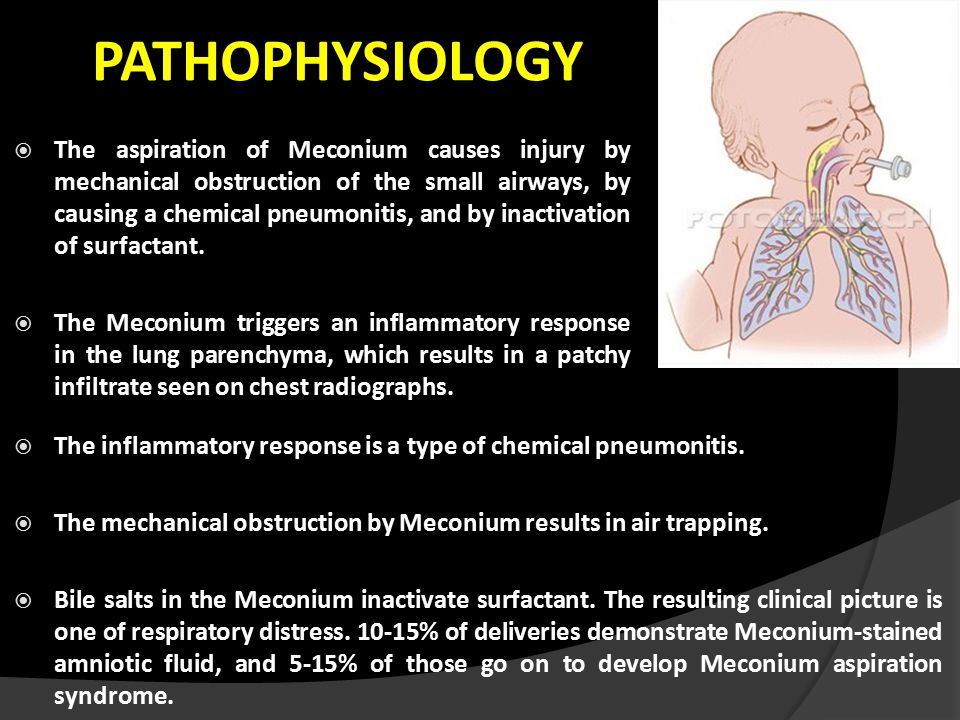
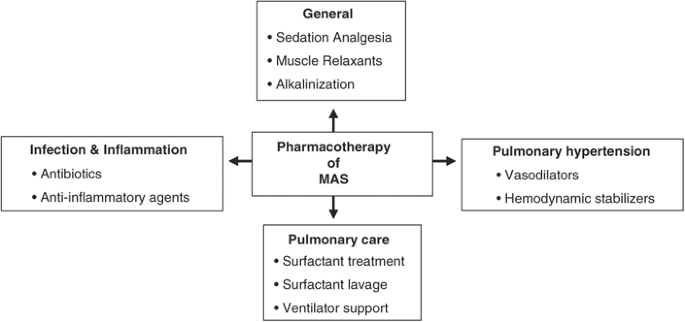

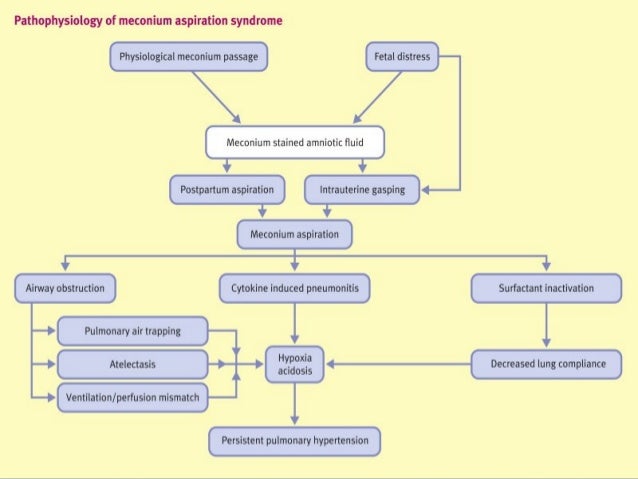
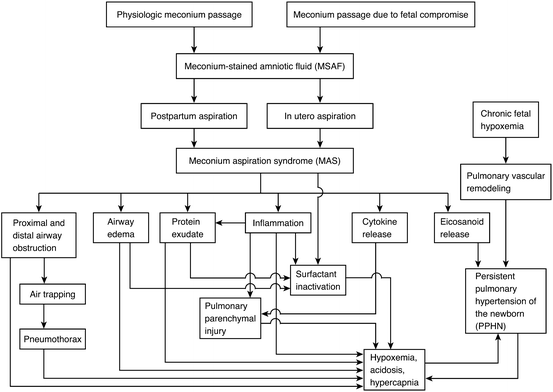

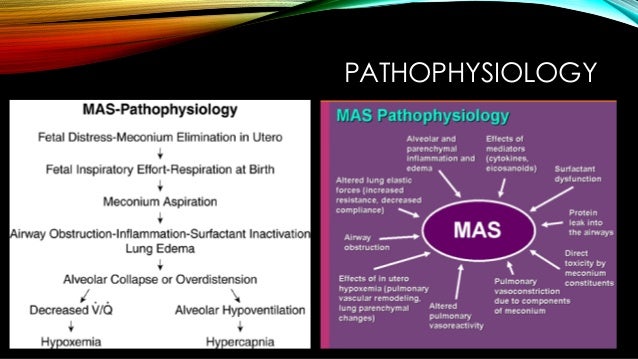
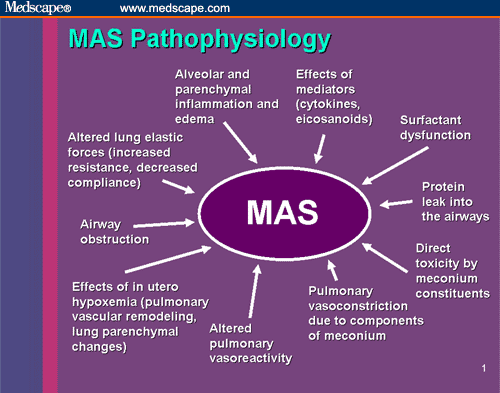
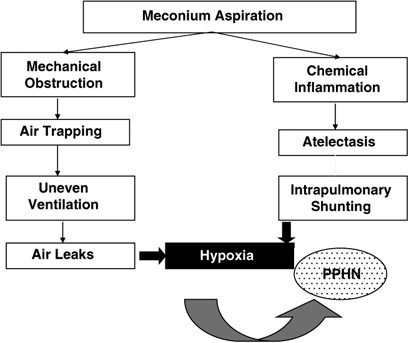

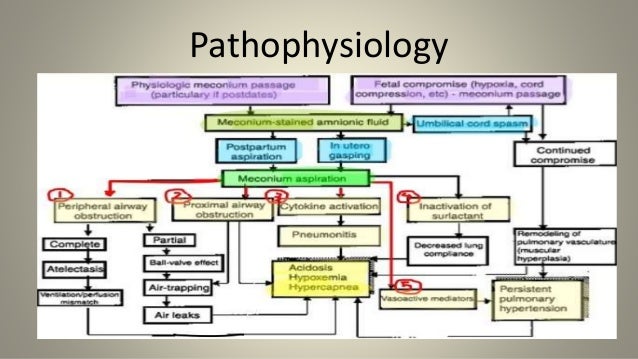

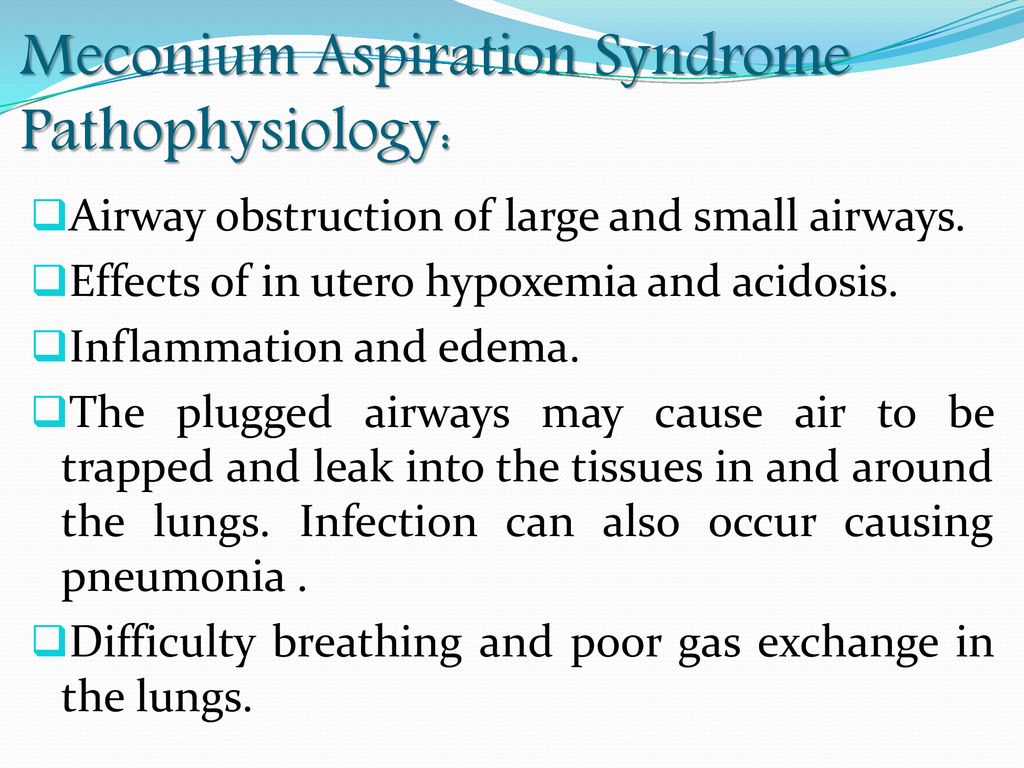


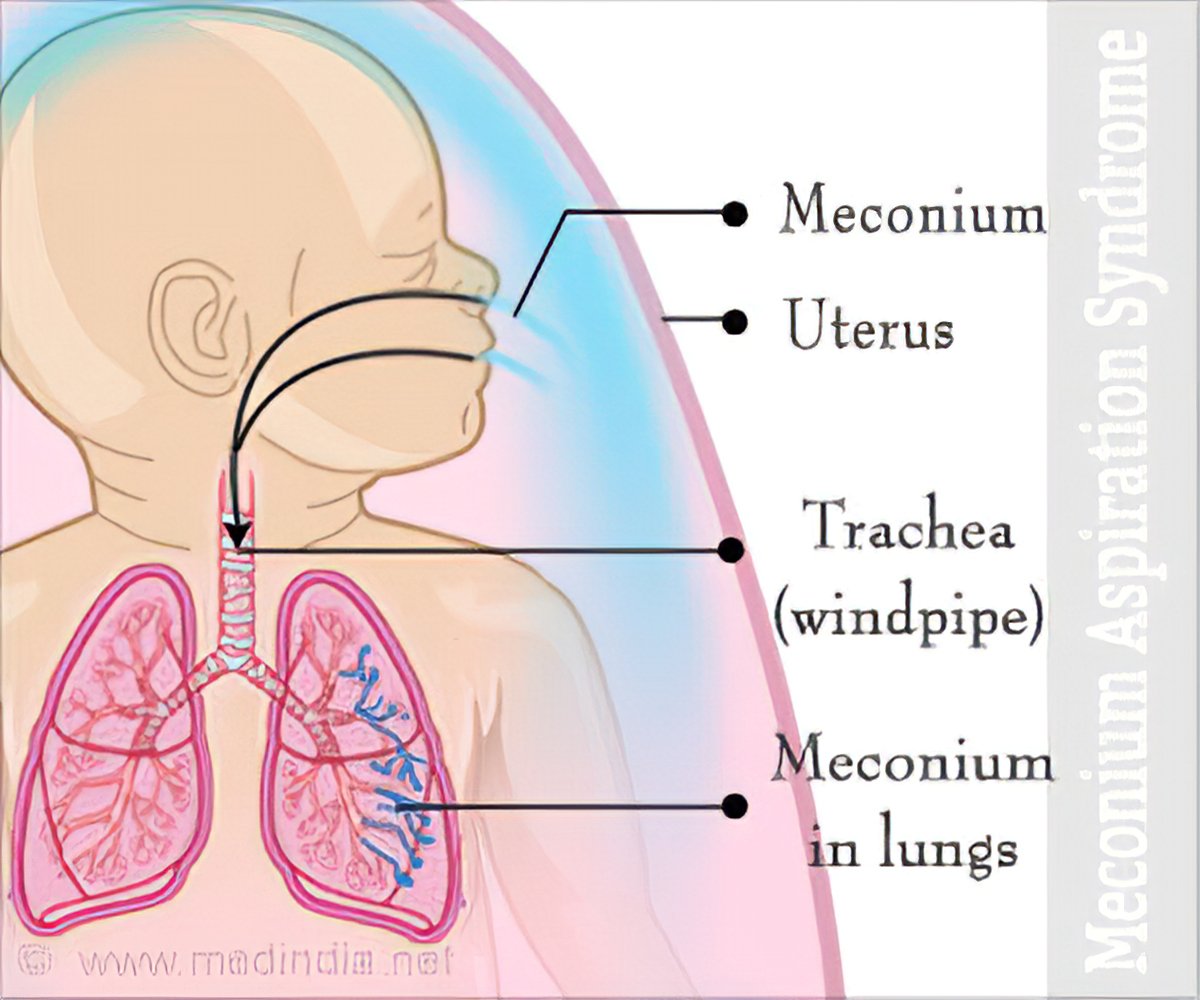





Post a Comment for "Pathophysiology Of Meconium Aspiration Syndrome"